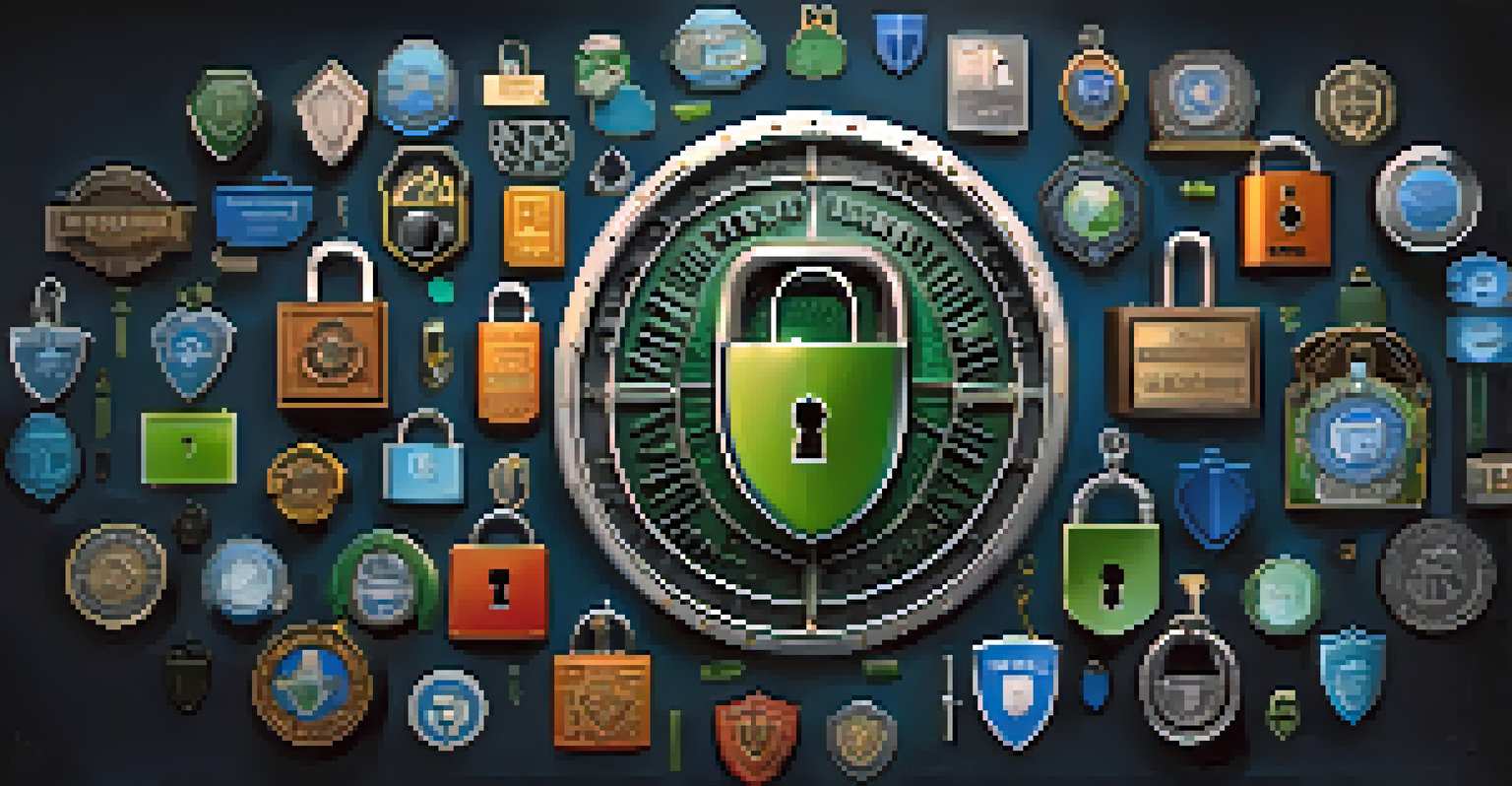The Significance of Security Questions in Crypto Accounts

What Are Security Questions and Why Do They Matter?
Security questions are a form of authentication used to verify your identity. They serve as an extra layer of protection for your crypto accounts, ensuring that even if someone steals your password, they can't easily access your assets. Think of them as a secret handshake that only you and your account understand.
Security is not a product, but a process.
These questions typically require you to provide personal information that is only known to you. For example, they might ask for your mother's maiden name or the name of your first pet. This information should be memorable yet difficult for others to guess, making it a crucial part of your account's security.
In the world of cryptocurrency, where transactions are irreversible and funds can be lost in an instant, having robust security measures is essential. Security questions can act as a safety net, helping to prevent unauthorized access and giving you peace of mind.
The Role of Security Questions in Preventing Hacks
Cybersecurity threats are rampant, especially in the crypto space, where hackers constantly seek vulnerabilities. Security questions add an additional barrier that can deter these malicious actors. When combined with strong passwords, they create a multi-layered defense system that is much harder to breach.

Consider a scenario where a hacker gains access to your email but still needs to answer your security questions to access your crypto account. If you've chosen unique and obscure questions, this extra step can buy you valuable time to respond and secure your assets.
Security Questions Enhance Protection
Security questions add an extra layer of authentication, helping to safeguard your crypto accounts even if your password is compromised.
Moreover, the significance of these questions can't be overstated; they can mean the difference between losing your life savings or keeping your investments safe. In a world where every second counts, every layer of protection is crucial.
Choosing Effective Security Questions
Not all security questions are created equal. When selecting questions, aim for those that are personal yet not easily discoverable through social media or online searches. For instance, instead of asking for your favorite color, consider using obscure memories that only you would know.
The best way to predict the future is to invent it.
It's also wise to avoid questions with answers that could change over time, such as your childhood address. Instead, opt for questions that capture a moment in time, like the name of your first school or the model of your first car, which are unlikely to change.
Ultimately, the goal is to create a set of questions that present a challenge to anyone trying to access your account without permission. The more secure your answers are, the safer your crypto investments will be.
The Importance of Keeping Answers Confidential
Just as you wouldn't share your password with anyone, it's crucial to keep your answers to security questions confidential as well. Sharing this information, even with trusted friends or family, can put your account at risk. Remember, what seems harmless to you might be a key to someone else.
Additionally, consider how your online presence can impact your security. If you post personal information on social media, such as your hometown or pet's name, you may inadvertently make it easier for someone to guess your answers. Staying mindful of your digital footprint is essential.
Choose Questions Wisely
Selecting personal and obscure security questions is crucial to prevent unauthorized access to your accounts.
In summary, safeguarding your security question answers is just as important as choosing the right questions. By keeping this information to yourself, you maintain control over your account and its security.
How to Recover from Compromised Security Questions
If you suspect that your security questions have been compromised, immediate action is necessary. The first step is to change your password and any other authentication factors associated with your account. This reduces the risk of unauthorized access while you address the issue.
Next, reach out to your crypto platform's customer support for guidance. They may have specific protocols in place to help you regain control of your account safely. Make sure to explain the situation clearly, as they may require additional verification.
Finally, consider updating your security questions and answers to stronger, more obscure ones. This proactive approach can help prevent future breaches and reinforce your account's security.
The Future of Security Questions in Crypto
As cybersecurity continues to evolve, the methods we use to protect our accounts must adapt as well. While security questions have been a popular choice for many years, there is ongoing debate about their effectiveness. Some experts suggest that as social media and data mining become more sophisticated, traditional security questions may become less secure.
Innovative solutions are emerging, such as biometric authentication, which uses fingerprints or facial recognition. These methods can offer enhanced security, but they also come with their own set of challenges, such as potential privacy concerns. Balancing security and convenience will be key moving forward.
Keep Answers Confidential
Maintaining the secrecy of your security question answers is essential to ensure your account remains secure.
Ultimately, the future of security questions in crypto may involve a hybrid approach. Combining traditional questions with advanced security measures could provide the best of both worlds, ensuring that your assets remain protected in an ever-changing digital landscape.
Best Practices for Overall Crypto Security
Aside from using security questions, there are several best practices you can adopt to enhance your overall crypto security. Start by using strong, unique passwords for each of your accounts. Password managers can help you generate and store complex passwords, ensuring you don’t have to memorize them all.
Additionally, enabling two-factor authentication (2FA) adds another layer of security. This means that even if someone were to get your password, they would still need a second form of verification, such as a code sent to your phone. This extra step can make a significant difference in keeping your assets safe.

Finally, stay informed about the latest security threats and trends in the crypto world. Knowledge is power, and being aware of potential risks can help you make better decisions about your account security.